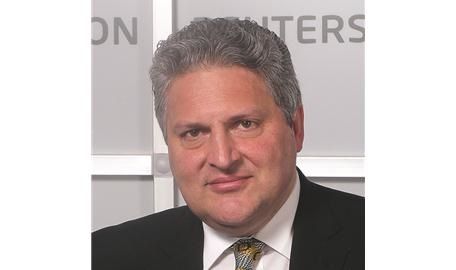Does ISDA’s credit derivatives determinations committee have just a touch of the Libors about it?
What I mean is: surely having a group of insiders make decisions to trigger or not trigger CDS – and which leads to binary outcomes as to winners and losers – is a sub-optimal way to proceed and an example of poor industry governance. This has been on my mind for some time but I was reminded of it in the wake of the meetings the DC has been having in Europe this week about the Novo Banco saga.
DC dealer members are selected in ISDA’s words “in accordance with objective criteria based on their overall trading volume and participation in the CDS markets during the prior year to ensure overall expertise in the product”. In Europe, the DC comprises AllianceBernstein, Bank of America, Barclays, BlueMountain Capital, BNP Paribas, Citadel, Citigroup, Credit Suisse, Cyrus Capital Partners, Deutsche Bank, Goldman Sachs, Morgan Stanley, JP Morgan, Nomura and Pimco.
The answers to DC questions may be deeply complex or highly legalistic so in that respect having derivatives expertise misses the point. Beyond that, and far be it from me to even suggest that committee members would ever allow their judgements to be coloured by their firms’ positions, but after the disasters of Libor, FX and other benchmarks, it’s all about perception. Surely it should always be up to a panel of independent experts to decide these matters and remove the risk of accusations of bias.
The key question for the vote at yesterday’s DC meeting was this: “Has a Governmental Intervention Credit Event occurred in respect of Novo Banco S.A?” Such a simple but loaded question. Who knows on what exact basis the Bank of Portugal, in its capacity as the country’s resolution authority, plucked five lines of Novo Banco senior debt (worth €1.941bn) from a stock of outstanding debt securities totalling €7.348bn and dumped them into the BES abyss ahead of the latter’s winding up?
It’s not a simple matter, especially since the BES resolution document contained a specific (albeit rather vague) reference to the possibility that the perimeter of assets, liabilities, off-balance sheet items and funds under management might be redrawn. Expertise in credit derivatives isn’t required here.
Of course, the DC does resort to external review if it can’t achieve an 80% “super-majority”. In the case of Novo Banco, the DC fell one vote short of the 12 votes (in this case naysaying the question) needed to decide.
The external reviews are conducted, again in ISDA’s words, by a trio of “independent, third-party professionals with market and/or legal expertise (such as British Queen’s Counsels, academics, and other independent legal experts who specialise in the derivatives market”. (I wonder how many QCs specialise in the derivatives market, but let’s leave that aside).
The EMEA DC hasn’t appointed any external review pool members yet so we’ll have to wait and see who they come up with. But an independent panel of experts undertaking formal arbitration-style briefings and arguments sounds much more like it. ISDA should ditch the DC format and contract dispassionate experts for every occasion.
● Talking of Libor, I’ve been assembling a lot of data and viewpoints and am preparing a detailed commentary on various aspects. So far, I’ve logged 32 individuals that have either been convicted and sentenced, convicted and awaiting sentence, pled guilty and awaiting sentence, pled guilty as part of co-operation deals with judicial authorities, are in trials or have been charged. The litany of woe shows no sign of abating. Watch this space.
